World Book Day 2025: Read Your Way
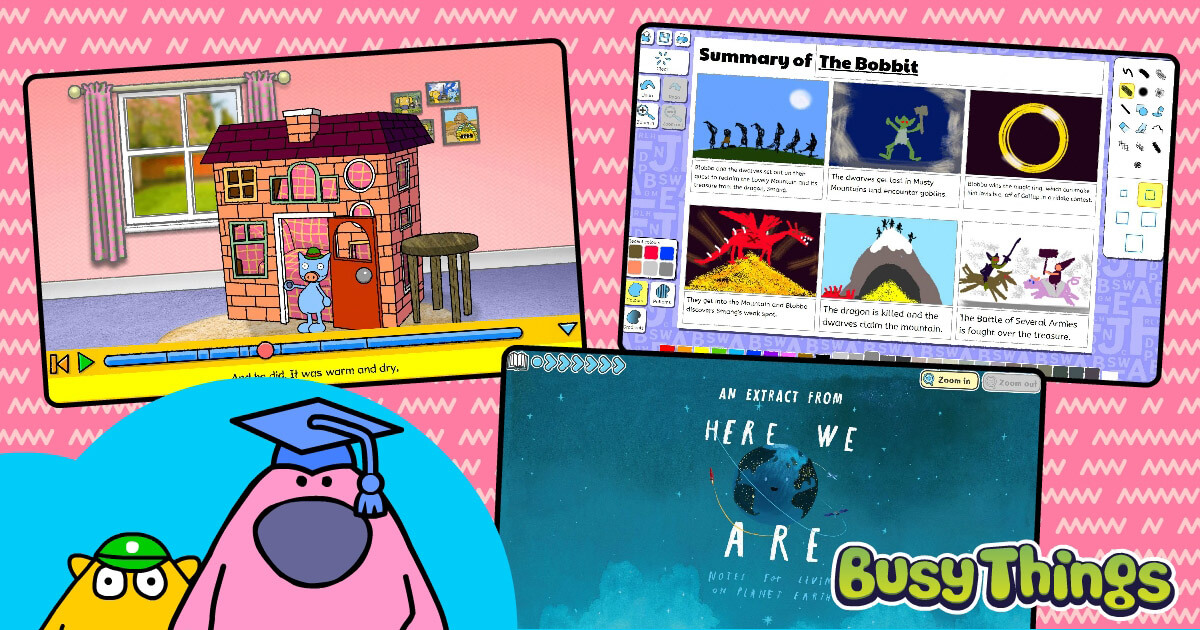
World Book Day is one of the highlights of the school calendar. It’s a day bursting with excitement, creativity, and, of course, has books and reading at its heart! This year, World Book Day will take place on Thursday 6th March, and its theme will be ‘Read Your Way’.
Children eagerly anticipate dressing up as their favourite book characters, and seeing the princesses, superheroes and Harry Potters file through the gates is a vision to behold. But beyond the fun of costumes, World Book Day is a golden opportunity to support reading for pleasure.
The aim of the day this year is to encourage us to tailor our approach to reading and personalise it by child to stem the decline of reading for pleasure in primary schools. Current research sadly indicates that 70% of children aged 2-4 love reading, but by the end of primary school, this proportion drops to just 51%!
Turning the narrative around is no easy feat in the interactive, game-based world we live in, but the organisers suggest we look to the six key principles of reading for pleasure and individual children’s likes and dislikes to inspire children to read more.
We covered the six key principles World Book Day focuses on and how Busy Things can support each in a previous blog.
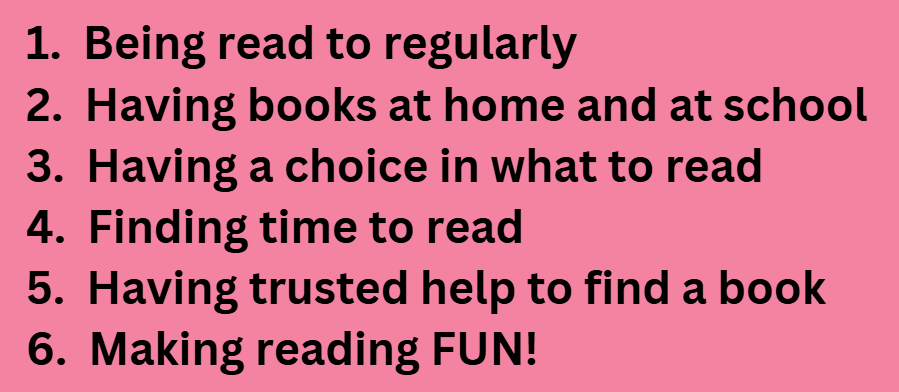
The principles remind us that fostering a love of reading goes far beyond the mechanics of decoding and understanding words themselves.
What does ‘Read Your Way’ mean for a child?
In this blog, we explore five ideas of what ‘Read Your Way’ could mean to get you started! These ideas are:
- Reading anything is positive
- Listening is good too!
- Read whenever, wherever
- Develop the areas that children enjoy
- Share the positives
1. Reading anything is positive
Not every child enjoys traditional books but that doesn’t mean they’re not reading! Comics, magazines, football programmes, recipes, joke books, and even game instructions all develop literacy skills. Giving children the freedom to choose what they read is essential because the more they feel in control of their reading, the more likely they are to read for pleasure.
Many children find books long and daunting to launch into; others feel a sense of failure if they have to give up on a book. Busy Things can help here as we’ve a whole host of excerpts that make the first step into a story much easier.
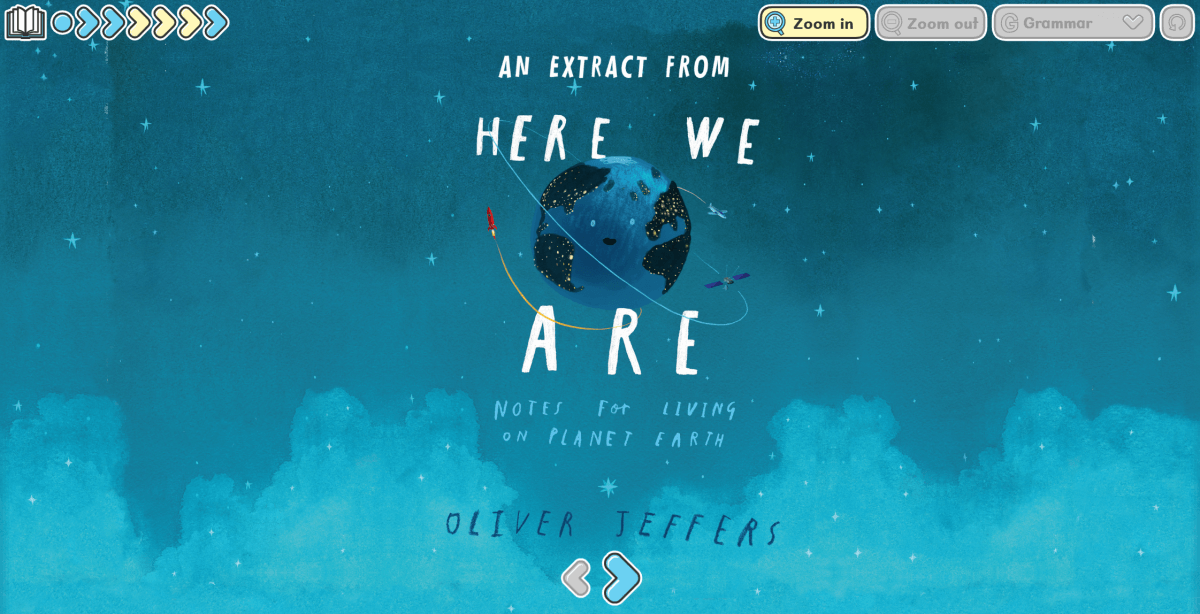
One of our most popular excerpts is ‘Here we are’ by Oliver Jeffers.
Covering just five or so pages, it gives the children enough of an idea to know whether they want to continue or not.
When encouraging children to read, keep in mind that it’s beneficial for children to read a mix of formats to understand the different writing styles involved too. Perhaps you could broaden your class’s experience – even the keen readers’ – by setting the children a ‘reading bingo’ challenge. You can use a pre-prepared bingo sheet off the Internet like this one or make your own, and award prizes for the first sheet fully completed.
2. Listening is good too!
Audiobooks, podcasts and storytime sessions are fantastic ways for children to experience stories and being read to is one of the six key principles mentioned earlier. As activities, they still promote positive reading habits and help to build vocabulary, comprehension and a love for storytelling.
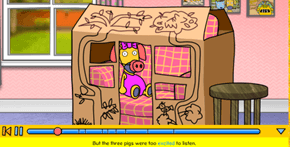
Busy Things’ Traditional tales stories as well as our two own narrated story books, One Day A Monster and The Chair That Went Wrong are ideal for this.
They’re especially useful for younger pupils and children who find decoding words tricky, and allow your pupils to hear a different reading voice to your own.
Play ‘The Three Little Pigs: Story‘ here free!
3. Read whenever, wherever
Reading doesn’t have to be sat down at a desk. Part of the fun for many is cosying up in an armchair; others love reading when they’re on the train or to distract them in waiting rooms. Children can enjoy stories anywhere and at any time.
Encouraging families to weave reading into everyday life helps frame reading as something pleasurable. A child following along with a recipe, reading shop signs in town or spotting words in their favourite game is engaging with the written word.
4. Develop the areas that children enjoy
Every child is unique, so finding out what makes reading enjoyable for them is key to them seeing reading as something other than a chore. Some children love action-packed plots, so detective stories might be their thing. Others adore funny characters, so perhaps graphic novels would appeal more.
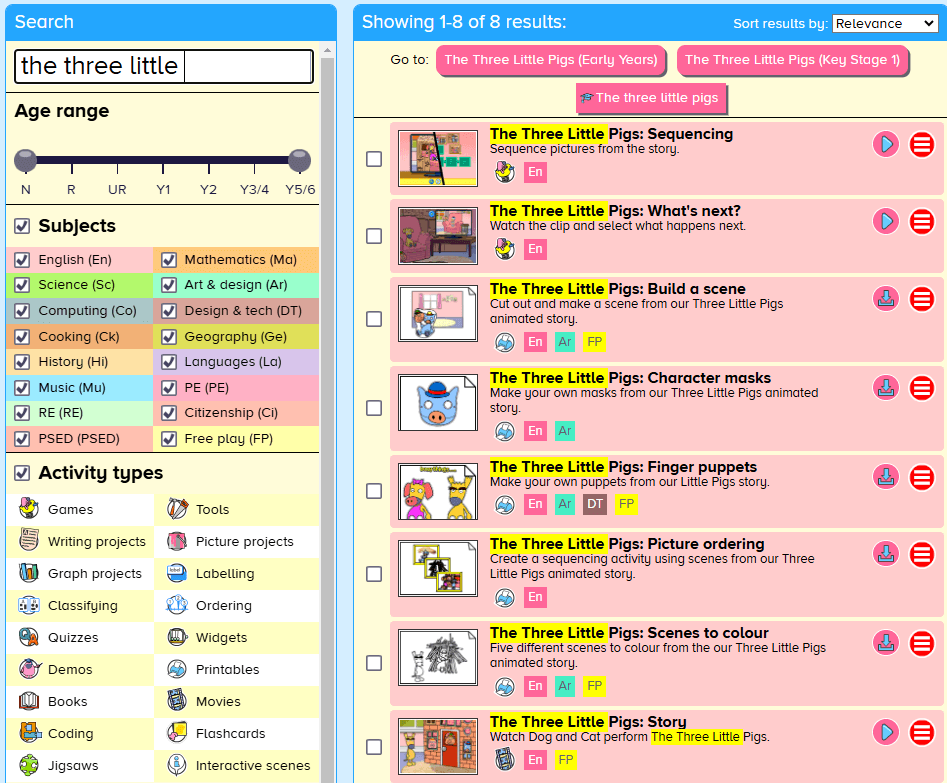
The Traditional tales mentioned earlier have a whole host of follow-on activities linked to them.
Children can sequence the events and predict what happens next. Other activities ask them to draw specific scenes or enable them to retell the story with the help of character masks and finger puppets.
You can see the range of activities in the image to the right. There is something for everyone!
It can be a struggle to accommodate everyone but if you can cover as wide a spectrum as possible, you’re bound to have more hits than misses! We included a few ideas in our World Book Day blog from 2023.
5. Share the positives
Reading is more fun when it’s shared, be that through book reviews, recommendations, book swaps or, as mentioned before, buddying up with other pupils to read!
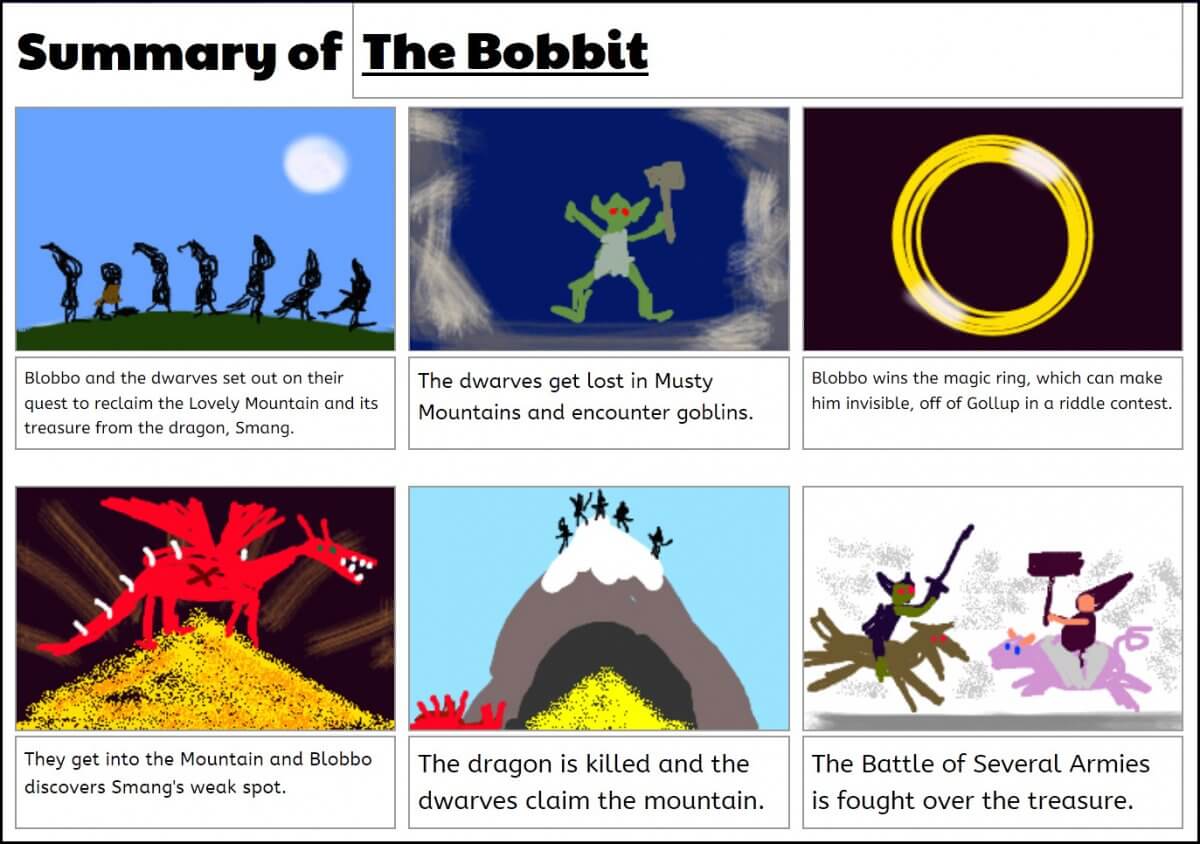
We know many children sigh at the very thought of a book review, but a review doesn’t necessarily mean a written paragraph.
Perhaps your children could get creative with our ‘Story summary’ writing project. Condensing the story they’ve read into six frames is quite a skill!
Developing a whole-school reading culture also makes reading feel like a shared adventure and normal. Getting the older ones to read to the younger ones is a nice idea, and you mind even find that the younger ones’ excitement rubs off on the older ones!
Final thoughts
We hope this blog has given you a little food for thought this World Book Day. Reading doesn’t have to follow strict rules. What’s important is that it’s enjoyable so that we can help every child develop a lifelong love of reading, which brings them so many benefits in later life.
Free activities
Within this blog, we’ve given you free access to several of our activities linked to reading, including an excerpt from ‘Here we are’, our ‘The Three Little Pigs: Story’ activity and our ‘Story summary’ writing project. These will all be free to play via the links until 7th March.
We’d also like to point you in the direction of some World Book Day costume ideas, which you can share with the parents of your pupils. Whether they’re looking for quick and easy, pirates, fairies or Vikings, we can help! To see all the ideas together, just go to the blog and search ‘World Book Day’!
More activities
If you’d like to see more of our literacy activities (or indeed, activities from other areas of the curriculum), please take a free trial here. If you’d like a Zoom tutorial to lead you through the platform, we are happy to do this too. Just click here to arrange!